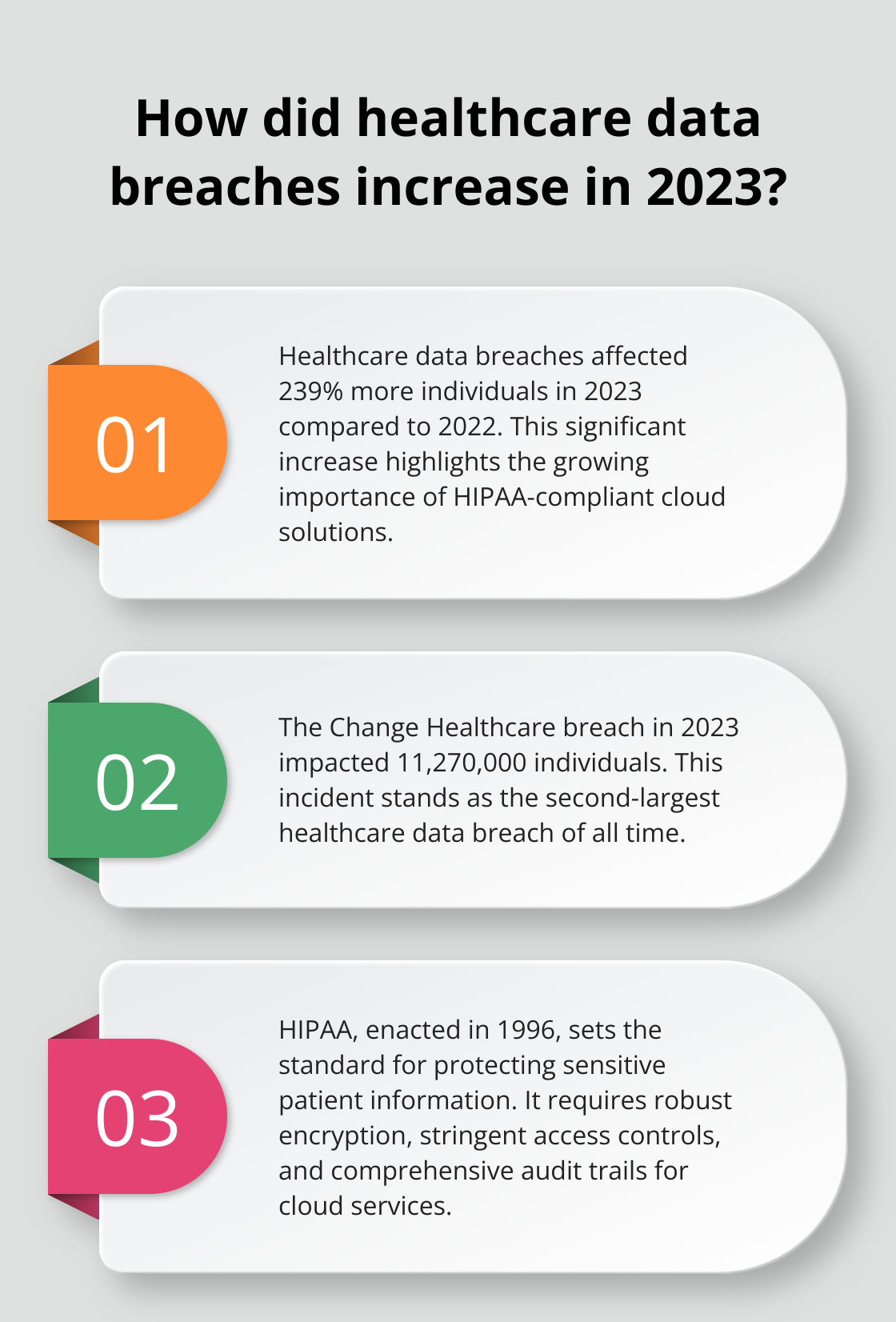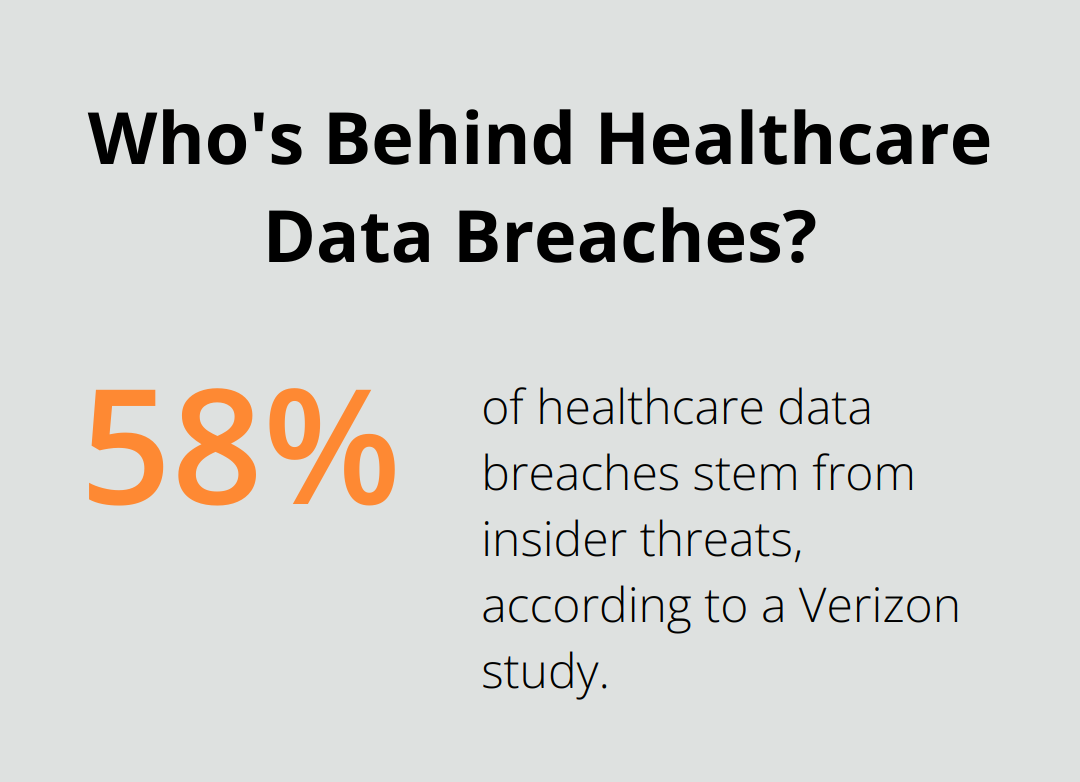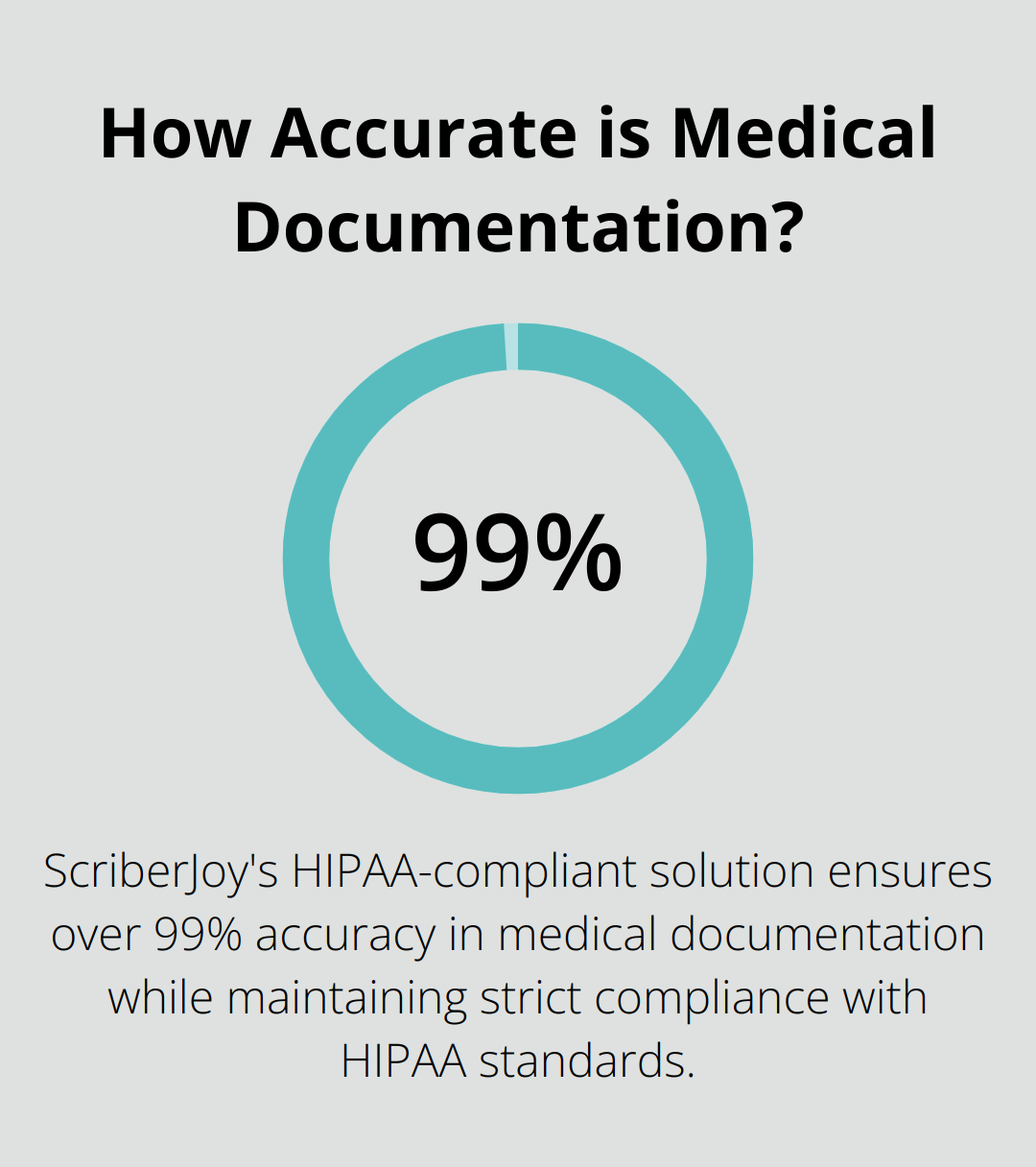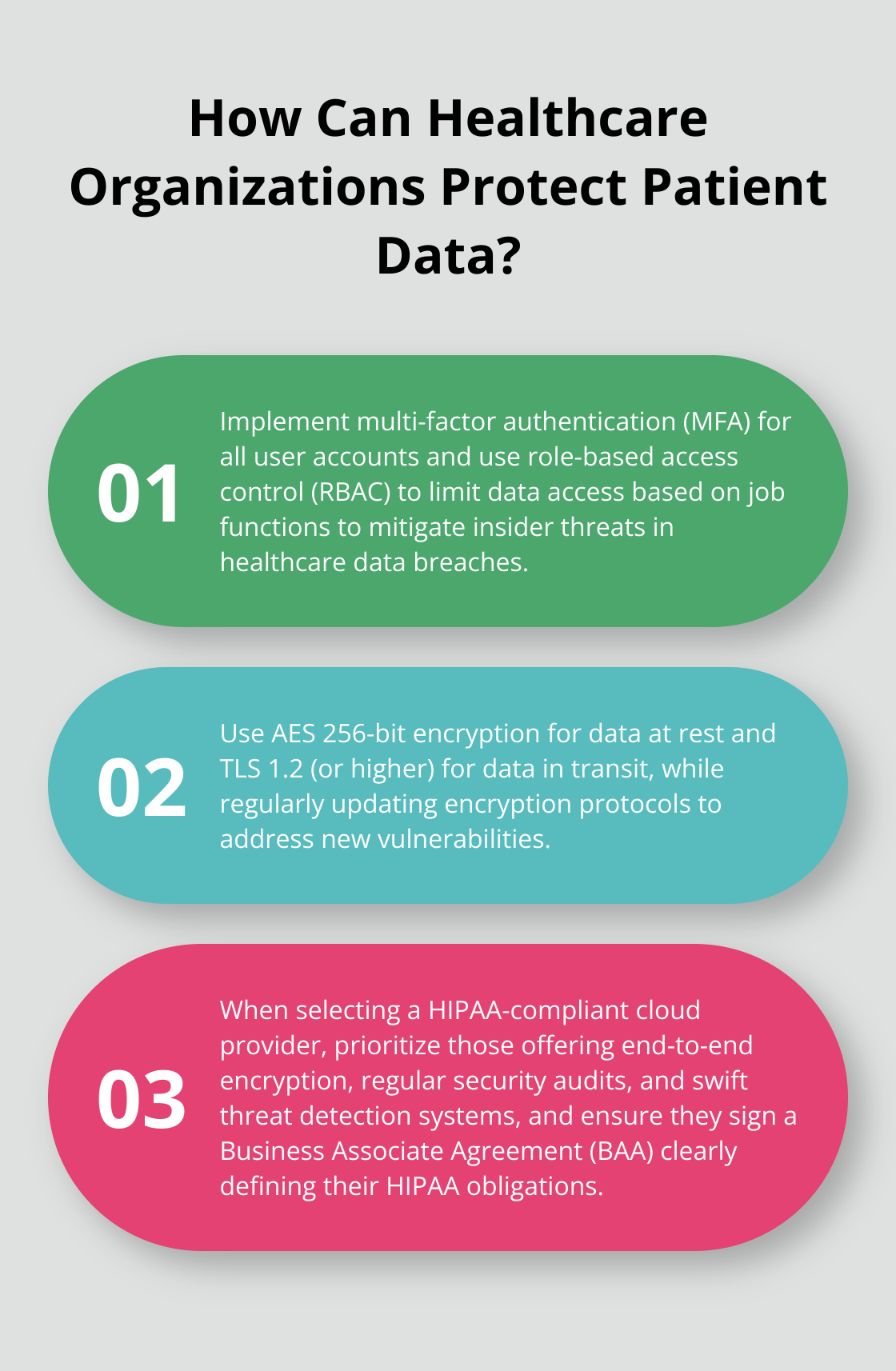At ScriberJoy, we understand the challenges healthcare organizations face when it comes to HIPAA compliance for cloud services.
The shift to cloud-based solutions offers numerous benefits, but it also brings new complexities in safeguarding sensitive patient data. This guide will walk you through the essential steps to achieve and maintain HIPAA compliance in cloud environments.
We’ll cover key requirements, debunk common misconceptions, and provide practical tips for selecting HIPAA-compliant cloud service providers.
Understanding HIPAA Compliance for Cloud Services
What is HIPAA and Its Importance in Healthcare?
HIPAA, the Health Insurance Portability and Accountability Act, stands as the cornerstone of patient data protection in the United States. Enacted in 1996, HIPAA sets the standard for safeguarding sensitive patient information. As healthcare organizations increasingly adopt cloud services, understanding HIPAA’s implications for these technologies becomes paramount.
Key Requirements for HIPAA Compliance in Cloud Environments
HIPAA compliance in cloud environments centers on protecting electronic Protected Health Information (ePHI). This protection includes implementing physical, network, and process security measures. For cloud services, this translates to robust encryption, stringent access controls, and comprehensive audit trails.

A critical requirement is the Business Associate Agreement (BAA). Cloud service providers must sign this agreement, acknowledging their responsibility in protecting ePHI. The use of a cloud service for ePHI storage or processing without a BAA constitutes a HIPAA violation.
Common Misconceptions about HIPAA and Cloud Services
Many believe that using any cloud service automatically violates HIPAA. This is a myth. The U.S. Department of Health and Human Services clearly states that HIPAA-covered entities can use cloud services, provided they implement proper safeguards.
Another misconception is that encryption alone ensures HIPAA compliance. While encryption plays a vital role, it represents just one piece of the compliance puzzle. Comprehensive risk assessments, thorough employee training, and well-defined incident response plans are equally important components.
Real-World HIPAA Compliance Challenges
Healthcare organizations face significant hurdles in maintaining HIPAA compliance. In 2023, the healthcare sector experienced a 239% increase in individuals affected by data breaches compared to the previous year. This alarming statistic underscores the critical need for robust HIPAA-compliant cloud solutions.
A notable case illustrating these challenges is the 2023 Change Healthcare breach, which impacted data for 11,270,000 individuals – the second-largest healthcare data breach of all time. This incident highlights the potential scale of data breaches and emphasizes the necessity for stringent HIPAA compliance measures in cloud environments.
To address these challenges effectively, healthcare organizations must prioritize regular risk assessments, implement strong access controls, and ensure their cloud service providers adhere to HIPAA compliance standards. This approach goes beyond mere box-ticking; it requires creating a culture of data security that permeates every aspect of cloud service usage.
As we move forward, let’s explore the essential steps healthcare organizations must take to achieve and maintain HIPAA compliance in the cloud. These steps form the foundation of a robust data protection strategy in an increasingly digital healthcare landscape.
How to Implement HIPAA Compliance in Cloud Services
Conduct a Thorough Risk Assessment
The first step to ensure HIPAA compliance involves a comprehensive risk assessment. This process identifies potential vulnerabilities in your cloud infrastructure and evaluates the likelihood and impact of security breaches.

A HIPAA risk assessment assesses threats to the privacy and security of PHI, the likelihood of a threat occurring, and the potential impact of each threat. Healthcare providers should:
- Identify all systems and applications that handle ePHI
- Evaluate current security measures
- Assess potential threats and vulnerabilities
- Determine the likelihood and impact of potential breaches
- Develop a risk management plan
Implement Robust Access Controls
Strong access controls play a vital role in HIPAA compliance. A Verizon study found that 58% of healthcare data breaches stem from insider threats. To mitigate this risk, healthcare organizations should:
- Implement multi-factor authentication (MFA) for all user accounts
- Use role-based access control (RBAC) to limit data access based on job functions
- Conduct regular user access reviews to ensure appropriate permissions
- Set up automatic logoff after periods of inactivity
- Assign unique user identification for all system users
Encrypt All ePHI
Encryption forms a critical component of HIPAA compliance. The HIPAA Security Rule mandates encryption of all ePHI both at rest and in transit. Healthcare organizations should:
- Use AES 256-bit encryption for data at rest
- Implement TLS 1.2 (or higher) for data in transit
- Manage encryption keys securely
- Update encryption protocols regularly to address new vulnerabilities
Establish Comprehensive Audit Trails
HIPAA requires healthcare organizations to implement mechanisms that record and examine activity in information systems containing ePHI. Effective audit trails should:
- Log all access attempts (successful or not)
- Record user activities within systems containing ePHI
- Include timestamps and user identifications
- Undergo regular reviews for suspicious activity
- Remain securely stored and retained for at least six years
Maintain Proper Documentation
Proper documentation proves essential for demonstrating HIPAA compliance. Healthcare organizations should maintain:
- Written policies and procedures for HIPAA compliance
- Risk assessment reports and remediation plans
- Employee training records
- Incident response plans
- Business Associate Agreements with cloud service providers
These steps significantly enhance HIPAA compliance posture in cloud environments. However, the journey doesn’t end here. The next chapter will explore how to choose HIPAA-compliant cloud service providers, a critical aspect of maintaining compliance in the long term.
Selecting the Right HIPAA-Compliant Cloud Provider
Evaluating Cloud Provider Security Measures
The selection of a HIPAA-compliant cloud service provider is a pivotal decision for healthcare organizations. A provider with robust security measures can bolster your data protection efforts, while an inadequate choice may result in costly breaches and violations.

Prioritize providers that offer comprehensive security features. Look for end-to-end encryption, multi-factor authentication, and regular security audits. A recent study by Cybersecurity Ventures projects healthcare cyberattacks to cost the industry $25 billion annually, highlighting the importance of partnering with security-focused providers.
Inquire about incident response plans and data backup procedures. The Ponemon Institute found that healthcare organizations take an average of 280 days to identify and contain a data breach. Your chosen provider should have systems in place for swift threat detection and response to minimize potential damage.
Understanding Business Associate Agreements
A Business Associate Agreement (BAA) is essential for HIPAA compliance. This legal document outlines your cloud service provider’s responsibilities in protecting patient data. The Office for Civil Rights (OCR) has imposed significant fines on healthcare organizations for failing to obtain BAAs (in one case, a hospital faced a $1.55 million fine for using a cloud-based file sharing application without a proper BAA).
When reviewing BAAs, focus on clauses regarding data handling, breach notification procedures, and termination conditions. The agreement should clearly define the provider’s obligations under HIPAA and specify how they will return or destroy PHI upon contract termination.
Assessing Provider Compliance Track Record
Investigate the compliance history of potential cloud service providers. Seek providers with successful HIPAA audits and certifications such as HITRUST or SOC 2. While these certifications don’t guarantee HIPAA compliance, they indicate a commitment to data security and privacy.
Ask providers about their experience with healthcare organizations similar to yours. A provider familiar with your specific needs can offer valuable insights and tailored solutions. For example, if you run a small practice, you might benefit from a provider experienced in serving similar-sized healthcare organizations.
Exploring HIPAA-Compliant Cloud Options
Several HIPAA-compliant cloud services exist in the market. Major players like Amazon Web Services (AWS), Microsoft Azure, and Google Cloud Platform offer compliant solutions. However, these general-purpose platforms may require significant configuration to ensure full compliance.
For healthcare-specific needs, specialized providers like Athenahealth, Carecloud, and DrChrono offer purpose-built, HIPAA-compliant cloud solutions. These platforms often include features tailored to healthcare workflows, which may simplify compliance efforts.
For medical transcription needs, ScriberJoy offers a HIPAA-compliant solution that combines AI technology with human verification. This platform ensures over 99% accuracy in medical documentation while maintaining strict compliance with HIPAA standards.
Considering Specific Organizational Needs
The ideal HIPAA-compliant cloud service provider for your organization depends on your specific requirements, budget, and existing infrastructure. Evaluate potential providers thoroughly, considering factors like security measures, compliance expertise, and industry reputation. Your provider choice plays a key role in maintaining HIPAA compliance and protecting sensitive patient information in the cloud environment.
Final Thoughts
HIPAA compliance for cloud services requires careful planning and ongoing management. Healthcare organizations must conduct risk assessments, implement security measures, and choose providers wisely. Strong access controls, encryption, audit trails, and proper documentation form the foundation of a secure cloud infrastructure that protects patient information.

The selection of a HIPAA-compliant cloud service provider plays a crucial role in maintaining compliance. Organizations should evaluate potential providers based on their security measures, compliance expertise, and ability to meet specific needs. Regular monitoring and updates address evolving threats and maintain compliance in the ever-changing healthcare landscape.
ScriberJoy offers a reliable option for healthcare organizations seeking HIPAA-compliant solutions for medical transcription. Our AI technology combined with human verification provides accurate medical documentation while adhering to HIPAA standards. This approach allows healthcare providers to streamline their documentation processes without compromising on compliance or accuracy.

Leave a Reply
You must be logged in to post a comment.